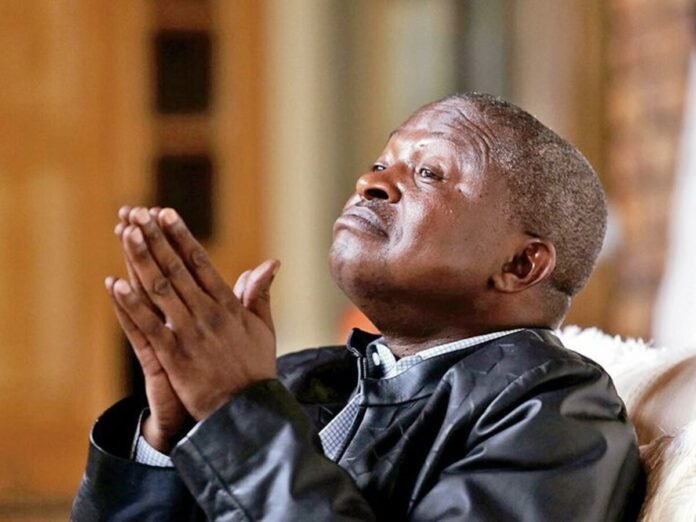The news of former Deputy President David Mabuza’s passing has sent ripples across South Africa, uniting political foes and comrades alike in shared grief.
At 64, the man affectionately dubbed “The Cat” for his political agility has taken his final bow—leaving behind a legacy as complex as the nation he served.
Ramaphosa’s heartfelt farewell
President Cyril Ramaphosa, who stood beside Mabuza during his tenure as the deputy president, expressed deep sorrow:
“I have learned with deep sadness of the passing of former Deputy President and former Premier of Mpumalanga David Dabede Mabuza… We are saddened today by the loss of a leader who was grounded in activism at the early stages of his political career and who came to lead our nation.”
Ramaphosa highlighted Mabuza’s critical roles—leading the South African National AIDS Council (SANAC), coordinating anti-poverty initiatives, and steering land reform efforts. His diplomatic engagements, particularly in South Sudan, underscored his commitment to Pan-African solidarity.
Mbalula’s ode to a ‘freedom fighter’
African National Congress (ANC) Secretary-General Fikile Mbalula’s tribute captured the essence of Mabuza’s political journey:
“We have lost a patriot, a freedom fighter, and a leader who served with humility and conviction. May his soul rest in peace, and may we honour his legacy by continuing the work of building a united, non-racial, non-sexist, democratic, and prosperous South Africa.”
Mbalula’s words echoed the sentiment of many—that Mabuza, despite controversies, remained a disciplined cadre of the ANC, shaped by the fires of anti-apartheid resistance.
Opposition voices: A rare consensus
Even political adversaries paused to acknowledge Mabuza’s influence. ActionSA’s Herman Mashaba, often critical of the ANC, offered condolences:
“While varying reflections on his legacy will no doubt unfold in the days to come, ActionSA simply wishes to extend compassion to his family… We pray for their strength, peace, and comfort during this time of loss.”
The EFF, though historically at odds with Mabuza, recognised his early activism:
“In the 1980s, while working as a teacher… Mabuza joined the ranks of progressive youth and student organisations resisting the apartheid regime.”
The man behind the politics
Mabuza’s life was a tapestry of triumphs and trials. A former teacher turned premier, he was instrumental in Mpumalanga’s governance before ascending to the deputy presidency. Yet, his tenure was marred by health struggles—including a poisoning incident in 2015 that left him frail.
“Even now, I still have a problem; I cannot stand for a long time. I am still on heavy treatment…” —Mabuza, in a 2016 interview
His resilience earned him respect, even as allegations of corruption and political killings (which he denied) shadowed his career.
A legacy etched in contradictions
Mabuza was a paradox—a quiet operator who wielded immense influence, a Jacob Zuma ally who later backed Ramaphosa, a man of the people who faced fierce criticism. Yet, as Professor Somadoda Fikeni noted:
“He could outwit political opponents… I could say he was the most dominant politician I know.”
Final farewell
s South Africa digests the loss of a quiet, complicated figure—neither lionized nor demonized without reason—one truth resounds: David Dabede Mabuza was a man of paradoxes, but his loyalty to the people, especially of Mpumalanga, was unwavering.
May his soul rest in peace.

